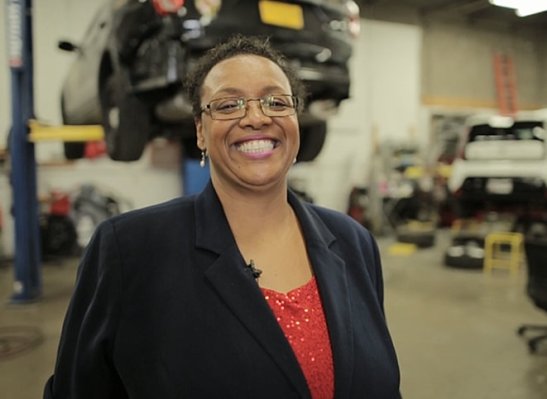FROM THE FAVELAS OF RIO TO A SUCCESSFUL ENTREPRENEURSHIP IN WASHINGTON D.C
By Able Ivory
 It’s always great when we discover international stories of the success that black Brazilian women are finding in other countries. Bellow you will find an inspiring story that shows the disservice that Brazil does its black population. It is the story of Monica Costa from Maryland via Rio de Janeiro. She began life at an enormous social disadvantage growing up in a favela in Rio de Janeiro. But from there, she has risen to mounting a successful business in the world’s only superpower and the country with the largest economy in the world.
It’s always great when we discover international stories of the success that black Brazilian women are finding in other countries. Bellow you will find an inspiring story that shows the disservice that Brazil does its black population. It is the story of Monica Costa from Maryland via Rio de Janeiro. She began life at an enormous social disadvantage growing up in a favela in Rio de Janeiro. But from there, she has risen to mounting a successful business in the world’s only superpower and the country with the largest economy in the world.
“Opportunity is what we need! It is primordial to grow. She is shiny, she is a star! There is certain things, no one can take from us. Even without opportunity in Brazil, she was able to shine somewhere else”, commented Claudia Dandara. “I have an empathy with her because I’m also black from Rio and I live in Maryland and I know how hard is to go to the top”, said Flavia Soares, another Afro-Brazilian living in United States.
Nestled among a busy stretch of brand-name auto dealerships and service companies in the affluent suburb of Rockville in Montgomery County, Maryland, is Wilniq Auto Body & Mechanical Repairs. Walk inside and you will immediately be greeted with a cheerful welcome and radiant smile from business owner Monica Costa. Behind the pleasant disposition of the 49-year old entrepreneur lives a deep-rooted essence of pride, success and achievement.
Monica will be the first to affectionately proclaim she is a daughter of the favelas. Defined as slums or shanty towns in Brazil, favelas are often plagued by poverty, crime, drug warfare and lack a solid infrastructure. In the early years, Monica, her two siblings, and their parents shared a one-bedroom hut constructed of mud in the favela of the Fallet Fogueteiro community in Santa Teresa, Rio de Janeiro.
 Twenty percent of the population of Rio de Janeiro live in favelas, representing about 1.5 million mostly Black and brown residents. While Brazil has a 51-percent majority Black population—the largest in the world outside of Nigeria at 106 million Black people —70 percent of Brazilians living in poverty are Black and less than 13 percent of Black Brazilians will matriculate into a college or university.
Twenty percent of the population of Rio de Janeiro live in favelas, representing about 1.5 million mostly Black and brown residents. While Brazil has a 51-percent majority Black population—the largest in the world outside of Nigeria at 106 million Black people —70 percent of Brazilians living in poverty are Black and less than 13 percent of Black Brazilians will matriculate into a college or university.
Monica’s mother, who had a high school education, worked as a maid first, and then as a cigarette factory employee. Monica’s father, a newspaper distributor and later a government office assistant, had only completed second grade before having to drop out of school to care for his younger siblings. For Monica, growing up as a darker-skinned, Black woman and daughter of the favelas, she was culturally conditioned to believe that she should settle for a path of limited possibilities. To become a low-wage domestic worker or assistant would have been a socially acceptable and attainable goal for someone of her complexion and income level in Brazil.
In interacting with a group of African-American tourists visiting Rio de Janeiro, Monica seized the moment to share her interest in studying in the States. A bridge was built from this meeting, and Monica had a means to learn about opportunities in the U.S. Her penchant for volleyball opened the door to study at the University of the District of Columbia on a volleyball scholarship. Four years later, Monica would graduate with a B.A. in Political Science. She began her career working at the U.S. Department of Interior in the international affairs office, followed by the State Department in the Language Office. She later met her future spouse, Francisco, a seasoned auto mechanic. Together, the couple built a well-oiled machine, with Monica managing the business operations and Francisco handling the mechanical repair operations for Wilniq.
In the spirit of creating opportunities and building a pathway for future generations, Monica aims to launch a training facility in Maryland to provide the Black community with a platform to learn the auto repair business and be future business leaders and owners. “I represent the people of the favelas,” said Monica. “There are so many untapped talents in the favelas and under-developed communities of Brazil and the world. Once opportunity is given, we also excel and can show our abilities, capabilities and go for our dreams.”
* Source: Black Women of Brazil
